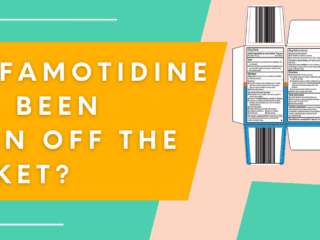Generic Name: Albuterol Sulfate Inhalation (Albuterol, Albuterol Inhalation, Salbutamol)
Brands: ProAir RespiClick, ProAir HFA, Proventil HFA, AccuNeb, Ventolin HFA
Class: Adrenergic Bronchodilators, Beta 2 agonist
Availability: Prescription Only
Molecular Formula: C13H21NO3
Substance UNII: 021SEF3731
What is Albuterol?
Albuterol is an adrenergic bronchodilator that can only be attained with a prescription. Albuterol is often sold under the brand names ProAir RespiClick, ProAir HFA, Proventil HFA AccuNeb, and Ventolin HFA.
What is Albuterol Used For?
Albuterol is a short-acting bronchodilator (widens the lungs’ airways) that is prescribed to prevent the onset of or to treat bronchospasm. A bronchospasm occurs when the muscles within the walls of the bronchioles (i.e., airways throughout the lungs) contract. Due to the reduced airflow that occurs during a spasm, an individual may experience shortness of breath, wheezing, chest tightness, and coughing. The conditions responsible for causing bronchospasms that are frequently treated with albuterol include: asthma (maintenance), asthma (acute), bronchospasm prophylaxis bronchiectasis COPD (maintenance) and COPD (acute). In addition, albuterol inhalation aerosol (Ventolin HFA, Proair HFA and Proventil HFA) is used to prevent the onset of exercise-induced bronchospasms.
Besides adults, when albuterol inhalation aerosol is being used to prevent the onset of exercise-induced bronchospasm, children as young as 4 can take it. Albuterol powder (Proair RespiClick) is suitable for children who are at least 12 years of age, and a solution can be used by children who are no younger than 2. When giving this drug to a child, it is vital that the doctor’s orders are followed.
How Does Albuterol Work?
The Short Answer
Albuterol helps people breathe easier by relaxing the lungs’ airways. Specifically, it relaxes the airway smooth muscle (ASM) by acting as a functional antagonist, which means it functions by inhibiting a bodily system. This antagonism occurs regardless of the substance (e.g., histamine) that is causing the contraction to occur in the first place. Once the smooth muscle in these constricted airways relaxes, the airways open up, thereby allowing the individual to breathe more freely.
The Long Answer
Albuterol sulfate is a beta2-adrenergic agonist. That means this medication works by activating beta2-adrenergic receptors on the airway smooth muscle (ASM). Now, this activation stimulates adenylyl cyclase (adenylate cyclase), an important enzyme (specialized protein) that helps regulate many functions in cells. After these receptors are activated, the adenylyl cyclase in turn activates the intracellular (inside cells) concentration of cyclic-3′, 5′- adenosine monophosphate (cyclic AMP), which results in an increase of AMP. Once cyclic AMP increases, protein kinase A (PKA) is activated, as experts believe that binding of cyclic AMP is how PKA activates.
PKA in turn does two important tasks. Firstly, it lowers intracellular (inside cells) ionic calcium concentrations. Since calcium ions help facilitate muscle contractions, lowering their concentration levels allows the ASM to relax. Secondly, PKA also hinders the phosphorylation (adding of a phosphoryl group–which contains both oxygen and phosphorus–to a molecule) of myosin, a group of protein that are involved with muscle movement, specifically contractions. With phosphorylation of myosin inhibited, muscle contractions can lessen.
In short, when someone takes albuterol, it relaxes all of the ASM, from the windpipe to the bronchioles. With airways relaxed, people have an easier time breathing.
How Long Does It Take for Albuterol to Work?
Albuterol typically starts working within 15 minutes of inhalation.
Do Not Use Albuterol If:
There are several situations where this medication may not be the right choice for you. According to the FDA, the following should not use albuterol:
- Those who are allergic to this medication
- Individuals who are allergic to milk proteins
Before taking albuterol, individuals should talk to their physician about their health conditions, including:
- Asthma, as some people with asthma may be at increased risk for complications after taking this medication
- High blood pressure (hypertension)
- Heart disease
- An irregular heartbeat (arrhythmia)
- Congestive heart failure
- Epilepsy (or any other seizure disorder)
- An overactive thyroid (hyperthyroidism)
- Low potassium levels
- If they are pregnant or planning to become pregnant
- People who are breastfeeding or planning to breastfeed
Please note that this list may not be complete, and there may be other situations where albuterol use is not advisable. Additionally just because you have low potassium, for example, does not mean you shouldn’t take albuterol. Discuss all options with your physicians and always take your albuterol as directed.
Disclaimer: this article does not constitute or replace medical advice. If you have an emergency or a serious medical question, please contact a medical professional or call 911 immediately. To see our full medical disclaimer, visit our Terms of Use page.








